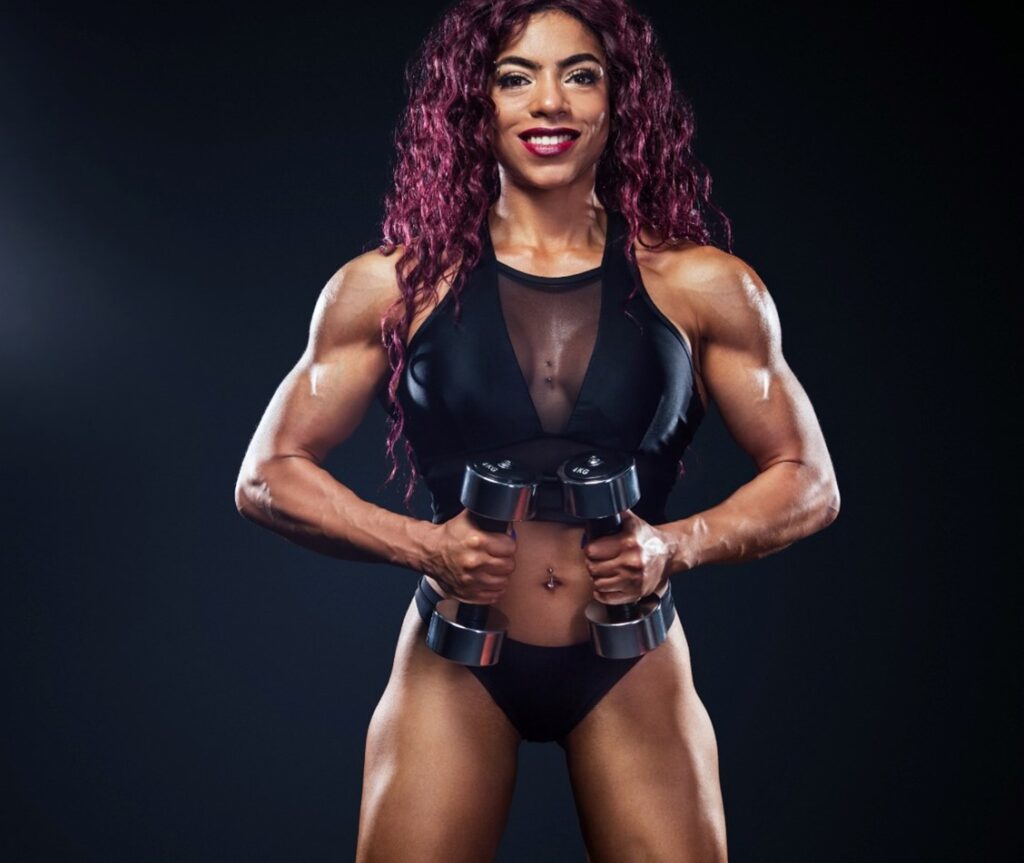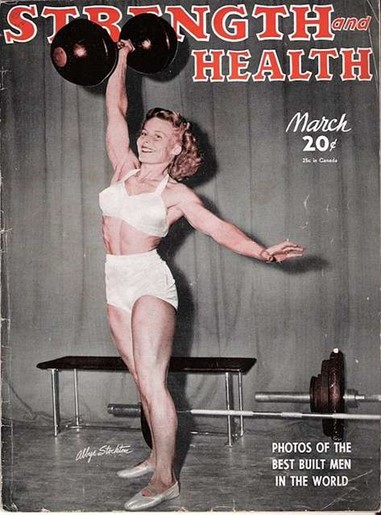In the ever-evolving landscape of fitness, the journey of women in weight training stands as a testament to resilience, breaking barriers, and redefining societal norms. The history of women in weightlifting is a narrative of empowerment, as they navigated societal expectations, shattered stereotypes, and claimed their space in a domain traditionally dominated by men. Below, Kecia Kelly traces the historical evolution of women’s involvement in weight training, highlighting milestones, pioneers, and the transformative impact on the world of fitness.
Early Twentieth Century: Breaking Ground
The early decades of the twentieth century saw the emergence of physical culture movements, emphasizing the importance of exercise for health and well-being. However, societal norms confined women’s involvement in physical sports to preserve a perceived fragility. Despite these constraints, a few trailblazing women began to challenge these conventions.
In the 1920s, the legendary strongwoman Abbye “Pudgy” Stockton emerged as a pioneering figure in women’s weight training. Known for her incredible strength and athleticism, Stockton defied expectations and showcased her prowess in weightlifting, becoming a symbol of empowerment for women aspiring to break free from traditional gender roles.
Post-World War II: Resilience and Redefinition
The aftermath of World War II marked a period of societal shifts, as women who had actively contributed to the war effort sought expanded roles and opportunities. In the 1940s and 1950s, women’s interest in weight training began to gain momentum. Figures like Joan Rhodes and Judy Glenney defied norms by engaging in strength-based activities, challenging stereotypes surrounding women’s physical capabilities.
The 1970s: A Fitness Revolution
The 1970s witnessed a fitness revolution that reverberated through society, challenging preconceived notions about women’s bodies and their capabilities. The advent of Title IX in 1972, a landmark legislation prohibiting gender-based discrimination in educational programs and activities, opened doors for women to participate in sports and athletics, including weight training.
Pioneering fitness enthusiasts like Rachel McLish and Cory Everson emerged as influential figures in the 1970s and 1980s. McLish, crowned the first Ms. Olympia in 1980, showcased a sculpted physique, challenging societal norms about the feminine ideal. These women paved the way for a new era in which women’s strength and athleticism were celebrated.

The Modern Era: Empowerment and Inclusivity
The late twentieth century and the early twenty-first century witnessed a significant shift in the perception of women in weightlifting. Fitness became more inclusive, emphasizing individual empowerment rather than conforming to societal expectations. Women like Dana Linn Bailey and Lizzie Martinez challenged stereotypes with their unapologetic embrace of strength and muscularity.
Social media platforms also played a pivotal role in democratizing fitness, allowing women to share their journeys, challenges, and triumphs. Influencers, athletes, and fitness enthusiasts created communities that celebrated diversity in body types, fostering a sense of belonging for all women in weight training.
Olympic Recognition: Legitimizing Women’s Weightlifting
The inclusion of women’s weightlifting in the Olympic Games marked a significant milestone in recognizing and legitimizing women’s contributions to the sport. The sport made its Olympic debut in 2000, providing a global platform for female weightlifters to showcase their skill, strength, and dedication.
Athletes like Zoe Smith (Great Britain), Tatiana Kashirina (Russia), and Hidilyn Diaz (Philippines) exemplify the diversity of women excelling in weightlifting on the Olympic stage. These women serve as inspirations for aspiring athletes and contribute to the broader narrative of women’s empowerment through strength.
The Future: Redefining Norms
As we look toward the future, the trajectory of women in weight training continues to evolve. The emphasis on strength, resilience, and individualized fitness journeys is reshaping the narrative surrounding women’s bodies. The growing popularity of strength-based workouts, weightlifting competitions, and fitness communities signals a departure from traditional norms.
The evolution of women’s fitness, particularly in weight training, reflects a broader societal shift towards inclusivity, empowerment, and the celebration of diverse bodies. The ongoing journey of women in weightlifting serves as an inspiration for future generations, encouraging them to embrace their strength, challenge stereotypes, and redefine what it means to be a woman in the realm of fitness.
